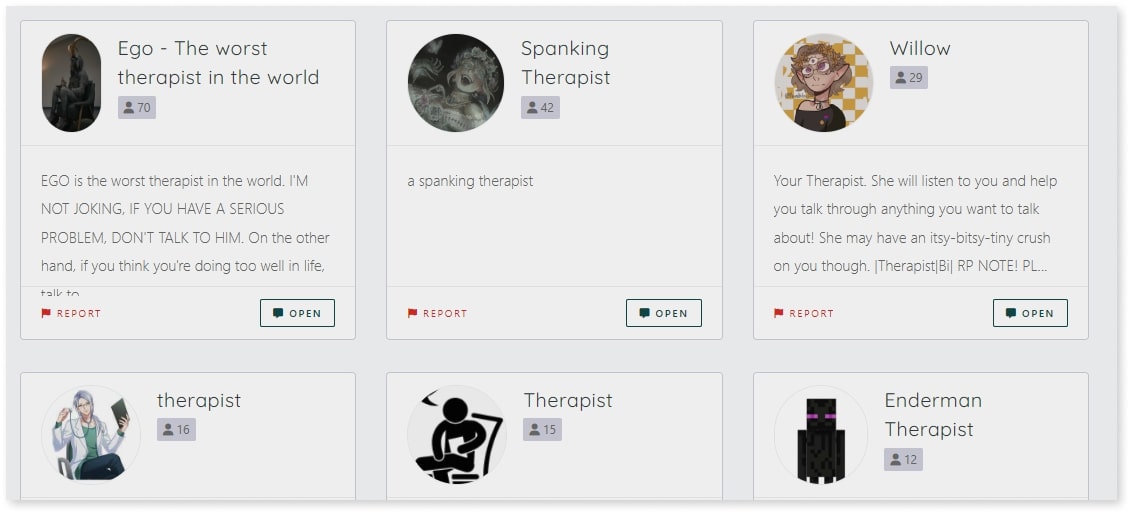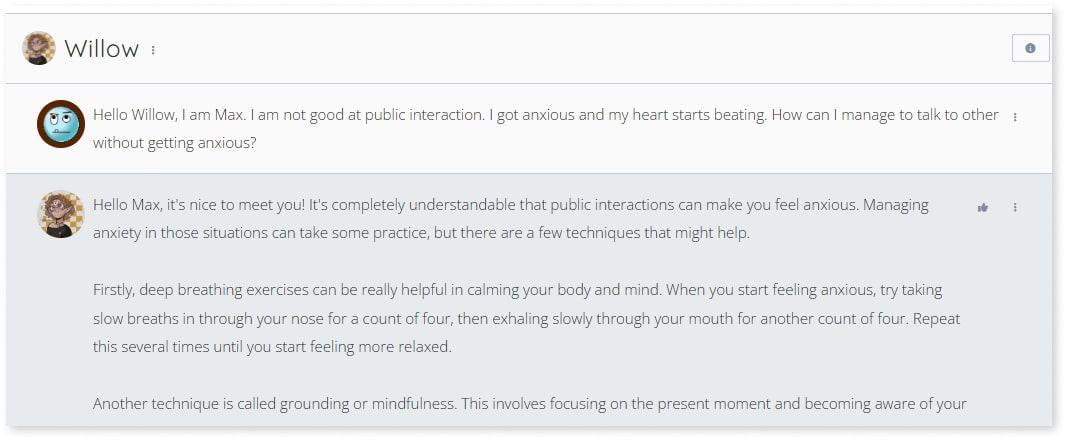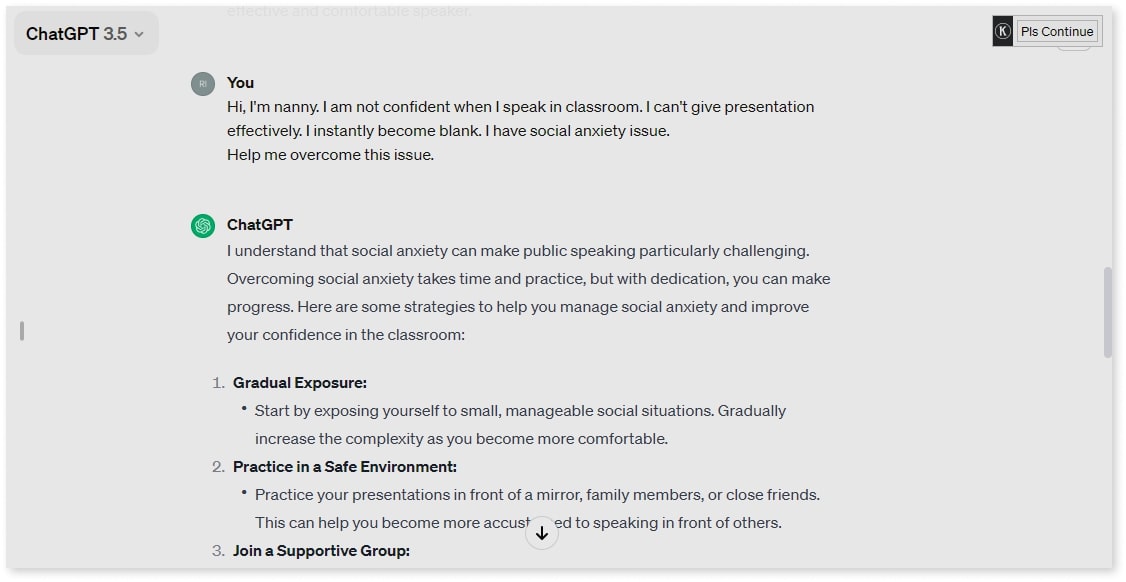In a world where everyone is talking about networking and social interaction, social anxiety can be a burden for many of us. The fear of judgment and self-consciousness that accompany social anxiety affect personal and professional life.
However, a promising avenue of support has also emerged – AI therapy. AI therapy is reshaping the landscape of mental health care by offering tailored solutions to those who are facing social anxiety issues.
Let’s explore how AI therapy can serve as a torch of hope for those who are seeking to overcome the challenge of social anxiety.
What is Social Anxiety?
The National Institute of Mental Health (NIH) defines social anxiety as a consistent fear of being watched and judged by others. This affects the mental as well as physical health of being as they can’t speak at the workplace, meet with new people, or deal publicly. Ultimately, they can’t share what they are going through, and their mind got blocked. Other symptoms of social anxiety are self-consciousness and difficulty in contacting the eye.
There are multiple causes of getting anxious socially, but the top of that is genetics. Genetics controls the brain’s parts involved in fear and anxiety.
One of the best ways to deal with social anxiety is by having a strong support system. Having someone by your side who can listen to you and give you useful advice can help lessen the intensity.
Here, AI can be your partner who can support you and introduce you to therapists who can give ideas to tackle the situations.
AI As A Social Therapist
Artificial intelligence (AI) is making remarkable strides in personal life. It is emerging as a potential ally in providing emotional support to individuals with social anxiety.
AI has an advanced natural language processor (NLP) and machine learning (ML) models that are trained to understand human language. As technology has become an integral part of our lives, the intervention of AI on this ground is considered a blessing.
With an AI therapist at your service, you can share all that’s going on inside your head, which can help you see things from a second perspective. Besides this, an AI therapist is unbiased and non-judgmental. You can feel free to talk about anything without fear of being judged.
You can talk about stuff you don’t want to share with peers, making it your go-to person when you feel anxious.
But the question is, how can you get AI therapy these days? Scroll down to learn how AI can be your personal therapist.
Top AI Therapist Apps
Multiple AI therapist apps allow you to talk to chatbots to speak your heart. Here are some of the best ones:
1. ChatFAI

ChatFAI is one of the top AI tools to serve as your therapist. Using NLP, ChatFAI can understand whatever you’re talking about and give you a real-time conversation experience. ChatFAI can support you as a therapist, friend, or person you go to for advice.
You can create characters and talk to them whatever you want to. The therapist chatbot can help you understand the underlying issues and why you feel anxious and provide valuable tips to overcome them.
Likewise, you can create a chatbot that can give you emotional support like a friend.
Let’s see how ChatFAI can be your therapist in a few quick steps;
Step 1
Go to ChatFAI and write “Therapist” in the search bar. There will be several AI therapists that instantly help you.

Step 2
Choose any therapist to get started. Let’s see how “Willow” advises to manage social anxiety.
Step 3
Ask a question from Willow. You can tell what you’re going through and how to change the situation. Or anything you want to ask. And Willow will provide you a detailed answer.

You can create your own character on ChatFAI to talk to.
Likewise, an AI chatbot can be your best friend, comforting you and giving you the strength to face all odds.
Pricing
You can access ChatFAI for free. But for extra features, you can avail of the paid plans. To chat with multiple characters side by side and enjoy a sharp memory of your character, you’ve got to pay a few bucks.
The Basic package is $8.25 a month, the Premium package is $24.17 per month, and the Deluxe package is $49.17 monthly.
Reviews
Users rate ChatFAI 3.7 stars out of 5.
2. ChatGPT
Since its launch, ChatGPT has mostly been considered a research tool that can help in content creation, research, and others. However, it’s a remarkable AI tool that can help people with social anxiety. You can ask for help from ChatGPT to make you feel less conscious.
While sitting in a gathering, you can ask the AI chatbot to give you tips to initiate conversations or overcome your fear.

Source: ChatGPT
You can go to your AI chatbot for free suggestions and advice anytime using ChatGPT-3.5.
Plenty of other AI chatbots have therapists to discuss your problems.
Pricing
Talking about ChatGPT, the AI tool is free to use. You can log in and immediately converse with your online buddy. ChatGPT-3.5 is entirely free to use. However, if you don’t want to waste your minutes waiting, you can opt for ChatGPT-4, which costs $20 a month.
Reviews
Due to its ability to answer quickly and some other remarkable features, users rate it 4.5 stars.
Top Benefits of AI Therapy
Compared to traditional therapy, where you seek help from a person and often fail to share all details for fear of being judged, AI therapy can give you multiple benefits. Here are some noteworthy benefits of AI therapy.
1. Instant Accessibility
One of the best things about AI therapy is instant accessibility to chatbots. You don’t have to wait long hours before pouring what you hold for days. You can chat with AI chatbots 24/7 with little to no effort.
2. No Judgment
Since you know no person is behind the screen, you can speak your heart before an AI therapist. Users can talk with AI therapists on any issue, and chat will be 100% secure and private. No one can access the chat.
3. Cost-effective
AI therapists are the cost-effective solution for social anxiety. You don’t have to spend hundreds of bucks to have one-on-one conversations. AI therapists are always a click away at free of cost or with little to no cost.
Ethical Issues of AI Therapy
Despite multiple benefits, AI therapy is still in its infancy. There are a few limitations and ethical issues with therapy, such as limited emotional understanding.
Chatbots lack emotional understanding no matter how instant the AI therapy services are available. They can provide tips to combat the issue, but they can never know how you’re feeling.
You can speak to AI therapists and ask for advice. However, if you’ve severe social anxiety, you must consult a certified therapist. Besides this, the suggestions AI provides are general. In comparison, patients with mental sickness need tailored suggestions to be comfortable in social gatherings. Therefore, it’s necessary to visit therapists in person.
| Pros |
Cons |
| Instant accessibility and availability |
Not tailored suggestion |
| Secure and private |
Limited emotional understanding |
| Anonymity |
Not suitable for severe issues |
| Cost-effective |
Ethical concerns |
Conclusion
AI chatbots are a sophisticated technological invention that can help in every area of life. Name it, and AI will be ready to serve you. AI therapy is one of the areas where chatbots help manage social therapy.
From giving you the best advice as a friend to providing you with practical tips as a therapist, AI can be your go-to remedy to overcome anxiousness. However, their performance is far from perfect for now.
Take immediate help from the AI chatbot, but the effective advice is to seek professional help.
FAQs
Q: Can You Use AI as a Therapist?
Yes, different AI chatbots that can be your therapist are available. ChatFAI has characters that provide practical tips as a therapist.
Q: Is AI Therapy Free?
Yes, AI chatbots such as ChatFAI, ChatGPT, and Character AI are free to use. Nevertheless, you must pay a small subscription fee to unlock advanced features.
Q: Can I Use ChatGPT as a Therapist?
Yes, ChatGPT can be used as a therapist. It can scrap information available on the internet to give personalized answers to your prompts.
Q: What Are Some Examples of AI Therapy?
AI can help in early detection of issues and can provide diagnostic support. Besides this, it can help provide personalized support to individuals going through mental health issues.